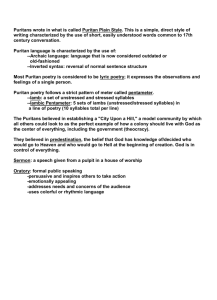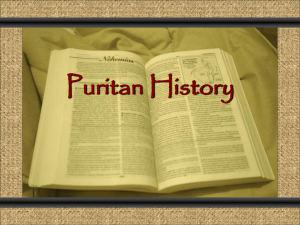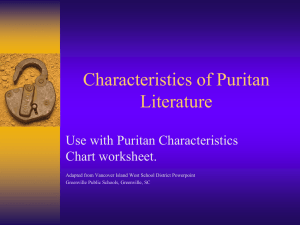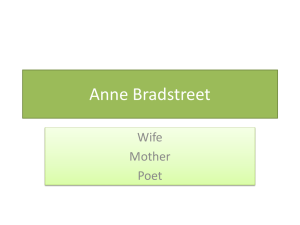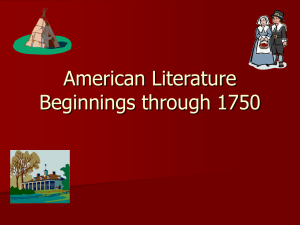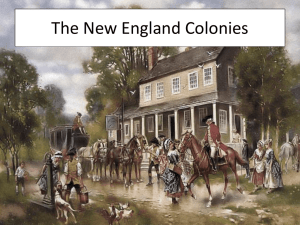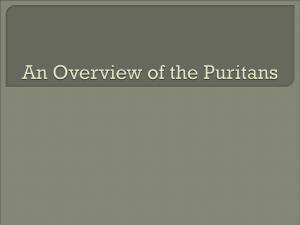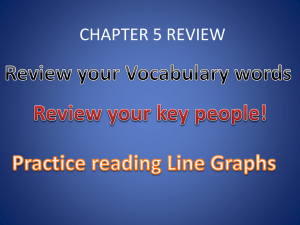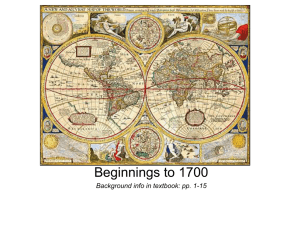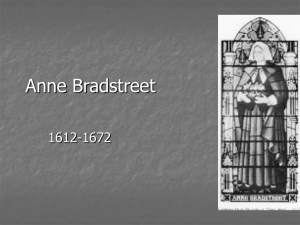From Colony to Country - Ashland Independent Schools
advertisement
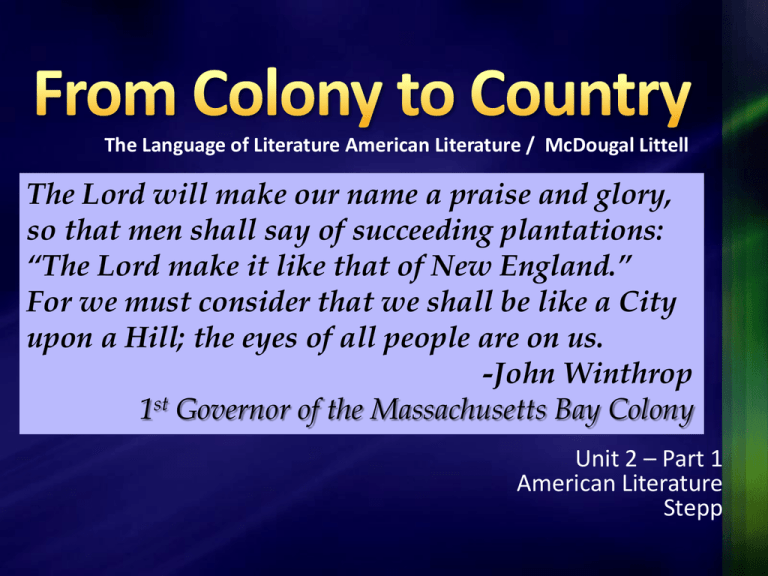
The Language of Literature American Literature / McDougal Littell The Lord will make our name a praise and glory, so that men shall say of succeeding plantations: “The Lord make it like that of New England.” For we must consider that we shall be like a City upon a Hill; the eyes of all people are on us. -John Winthrop 1st Governor of the Massachusetts Bay Colony Unit 2 – Part 1 American Literature Stepp Events in American Literature 1640 - Bay Psalm Book is 1st book printed in America. 1704 -1st American newspaper – Boston Newsletter. 1775 - In a speech to the 2nd Virginia Convention, Patrick Henry makes a plea (“Give Me Liberty, or Give me Death” speech) for armed resistance against the British. North America Events 1630 –Nearly 1000 Puritans establish Massachusetts Bay Colony 1775 – “The Shot heard ‘round the world” is fired on Lexington Green in Massachusetts starting the American Revolutionary War. World Events 1632 – Indian Emperor Shah Jahan commissions the building of the Taj Mahal, which takes 21 years. 1687 – Sir Isaac Newton posits the “Law of Gravity.” 1721 – Edo (Tokyo), Japan becomes the world’s largest city. 1789 – French Revolution begins (to 1794) Unit Two presents some of the great minds that shaped the early years of the colonies that would, one day, become the United States. This part of the unit contains literature from Puritan writers. We will read sermons, poetry, and nonfiction. For example, • Anne Bradstreet (Poet) • Salem Court Documents, 1692 • Jonathan Edwards (Sermon) 1620 -1800 Puritans have the reputation of being black-clad moralists who self-righteously proclaim the virtues of thrift and hard work. To call someone a Puritan is not usually a compliment. The negative image of Puritans is based largely on a stereotype of the 16th-century Puritans that, like most stereotypes, is full of half-truths and misconceptions. Puritan Values Firsts • hard work establish a printing press • self-sacrifice free public grammar schools • family life a college (Harvard) • community service • art and literature • material success. Puritans believed wealth was a reward to a virtuous life. On the other hand, many Puritans were arrogant in their religious faith and completely intolerant of viewpoints different from theirs. The key to the Puritan heart and soul is religious belief. Basic Puritan Convictions: •Human beings are inherently evil and so must struggle to overcome their sinful nature. This belief in the original sin was one of the 1st things a Puritan child learned. “In Adam’s fall / We sinned all” is the rhyme that teaches the letter A in The New England Primer. •Personal salvation depends solely on the grace of God, not on individual effort. Puritans believed in predestination, the doctrine that only those people who are “elected” by God are saved and go to heaven. The only way an individual could know that he or she was saved was by directly experiencing God’s grace in a religious experience. Basic Puritan Convictions: (continued) •The Bible is the supreme authority on earth. Puritans argued that the Bible was the sole guide, not only in governing the moral and spiritual life, but also in governing the church and society as a whole. •One effect of this belief was to make Puritan churches more democratic, organized around ruling bishops. •On the other hand, it led to the Puritans being more repressive in their political systems and more intolerant of others. • OBJECTIVES •Understand and appreciate lyric poetry (literary analysis) •Appreciate author’s use of meter (literary analysis) Meter is the repetition of a regular rhythmic unit in a line of poetry. •Clarify meaning of archaic language (active reading) Archaic language consists of words that were once commonly used in the past but are now considered oldfashioned or out-of-date. For example, • thee means “you” (singular) and • ye is the plural form of “you” • thy means “your” • doth means “does” Background - Puritan Poetry Anne Bradstreet was not only the first notable American woman poet—she essentially was the first notable American poet. Poetry in the 17th-century New England was almost exclusively devotional in nature and as such was high recommended reading in the Puritan community. Bradstreet’s poems focused on the realities of life (husband, children, house). However, being a Puritan Bradstreet viewed her life within a spiritual context. In other words, every event, no matter how trivial, bore a divine message; every misfortune served to remind her of God’s will and the path to salvation. Bradstreet’s poetry leaves a lasting impression of what it felt like to be a Puritan. Bradstreet often uses inverted syntax- meaning that she reverses the expected order of words. For example, in the first line of “Upon the Burning of Our House,” she writes “when rest I took” rather than “when I took rest.”

